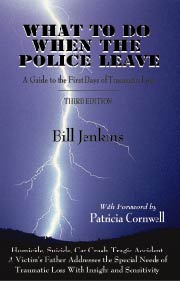Murderers’ ages: 16 & 30
Death: April 13, 2005, Springfield

ARNOLD, Titus Jamal 23, of Springfield, passed away Thursday, April 14, 2005 in Mercy Medical Center. He was born December 19, 1981 in Springfield the son of Willie S. and Victoria L. (Price) Arnold. He was employed by Vision for Youth and was a member of Greater Grace Temple, where he belonged to the Usher Board Committee and was a minister. He was a graduate of Springfield South High School, where he played football and was a senior at Urbana University. He was a coach for the Hayward Football Program.
Springfield mom who lost son in violent crime helps others in pain
Tom Stafford, April 8, 2019
National Crime Victims Rights Week begins today.
Next Sunday will mark the 14th anniversary of 23-year-old Springfield youth counselor Titus Arnold’s murder.
Arnold’s death was the final act in a four-day crime spree perpetrated by convicted murderers Jason Dean, who had been released from state prison that April 1, and 16-year-old Joshua Wade, who fired the fatal shot.
The spree that included a robbery at the Selma Road mini-mart, drive-by shootings of a pregnant woman and a 1-year-old girl left Arnold’s three children – including a nine-day-old daughter — without a father.
Although Wade continues to serve a life sentence in state prison, the anniversary of Arnold’s homicide will arrive three weeks after Dean’s passing in Franklin Medical Center, Columbus, at age 44, following a lengthy illness.
The death row inmate’s death was called “the ultimate gift of freedom” in a family obituary that said he was “loved and feared by many” and called him “the man too dangerous to move” — a reference to state prison officials’ decision that Dean and five other inmates were too dangerous to move when death row was relocated to Chillicothe Correctional Institution in 2011.
The obituary closed with a suggestion that, in lieu of flowers, individuals donate to their favorite charities “in an effort to promote and spread humanity and peace.”
The obituary’s tone combined with subsequent social media posts to rankle Arnold’s mother, Vickie, whose son’s killing netted the perpetrators $6. But in the approaching shadow of the anniversary of his death, she has advised her children and grandchildren to “take the high road” – to do, as she puts it, “what Titus would have done.”
“I will say this. I’m sorry for their loss,” Mrs. Arnold said of Dean’s family. “I never wanted Jason put to death. I just wanted him to pay for what he did.”
It is a stance deeply rooted in a vastly mothering heart that also has been at the heart of her recovery.
When Vickie Arnold picked up the phone last Oct. 13 at her desk at Central State University, she was happily employed as an admissions officer and had no idea she was about to answer to a new calling.
On the line was the familiar voice of then Clark County Prosecutor Andy Wilson.
“Andy just asked me a few personal questions,” Arnold said, questions that led her to think he was calling to check someone else out for a job.
No, he told her, “We want to hire you.”
“We had an open position for a victim’s advocate, and she was the first name that came to mind,” said Robyn Smith, director of the office’s victim-witness programs.
Wilson had hired Smith in 2011 because her background in mental health and trauma therapy seemed perfect for serving traumatized victims of crime and their families. For Arnold, who started her job Jan. 2, Smith’s arrival was fortuitous.
The Ohio Supreme Court had just overturned Jason Dean’s original conviction for killing Arnold’s son on the grounds the trial judge was biased. That meant Arnold was about to sit through a second prosecution, this one before a visiting judge. Less predictably, she also was to endure a second appeals process that would last more than five years, ending Oct. 27, 2016, when the U.S. Supreme Court refused to hear Dean’s final appeal.
During that difficult time, Smith was constantly at her side.
“Every time we would go to court, I would be angered,” Arnold said. “But (Robin) would sit in the court and hold my hand and squeeze my hand. She prepared me. She just didn’t just let me walk in there. She would call me at night and check up on me.”
After the original conviction was overturned Arnold was unsure about whether she trusted the court system – or anyone in it. “I had to learn her (character),” Arnold said. “But once I saw (Smith’s) heart, I knew she truly cared about me as a person, my family and my grandchildren.”
Current Clark County Prosecutor Dan Driscoll said that during Arnold’s personal ordeal, the staff at the prosecutor’s office learned to appreciate her at least as deeply.
“My recollection of Vickie … is how big her spirit was and how she would come into the office and hug the attorneys – not just those working on Titus’ case – and thank them for their work. In an unbelievably tough time for her, she was lifting others up.”
“There is a certain sense of acceptance and unconditional love that only a mother can give, and Vicky really radiates that,” Driscoll said. “She has a way of making you feel that she really cares. And that is a special quality.”
Arnold, the matriarch of a family of children, grandchildren, great-grandchildren and children she doesn’t regard as stepchildren or foster children, says it’s “just my nature.”
“My grandmother was nurturing, my mom was nurturing, and that’s just me.”
Those looking on from the outside might describe her family as a collection of biological children, step children and foster children, “but I don’t believe in the stepmom thing,” she said, nor the foster mom thing. “They’re all my children, and they’re all still here to deal with this.”
“I’ve always been the type of person. I have a heart for people, whether they be black, white, green or purple.”
That solid knowledge of her own heart has helped her to keep her mind straight in the wake of her son’s death.
“When it first happened, people tried to bring color into it,” she said. They argued the police and court response would have been different “if it was two black men that would have killed a white guy,” instead of two white perpetrators that had killed her son.
“We see people, we don’t see color,” she said of her family. “That’s the way I prefer it to be.”
“Have I tried to hate Jason? Absolutely. Have I tried to hate Joshua? Yes. But I can’t. Titus would not want to change my character or who I was as a person.”
But her son’s killing has changed the self-described “ordinary woman living an ordinary life, married to the same partner for 44 years” in a way of incalculable importance to families who have lost loved ones to violence.
Said Arnold, “I can actually say from my heart, ‘I know how you feel, because I’ve been there.’”
She began speaking those words when helping families as a volunteer for the prosecutor’s office as her son’s case was making its slow march through the court system.
“When she came back to say that he wanted to give back, she absolutely did,” Smith said. “She’s a natural nurturer, and she would connect with other mothers, other fathers and sit with people in the courtroom or just talk on the phone.”
“It was healing,” Arnold said. “It allowed me to inform other families that the system can be trusted. I know when I first went through it, I didn’t trust the courts and I didn’t trust the system to be able to get me a peace of mind and satisfaction.”
At the same time, her first cases were personally challenging because she knew the families and victims personally.
Jeff Wellington, who was shot to death at age 17 on Easter of 2014, “was my godson,” she said. “He and my grandson Dae’shawn (Jackson) grew up as brothers …. That kind of took me over the edge a little bit. But I knew I had to be there” for his family.
There also was “Lisa Scott, who lost her son Ricky,” Arnold said. “I knew Ricky when he was a baby” and her family and the Scotts “all grew up in the same church together.”
“A lot of the cases, I’ve known the families, and that makes it hard,” Arnold said. “But I have to put my personal feelings aside. I have to reassure them that the justice system works that they can trust the people there.”
Arnold also can tell them that, though there can be healing, there always will be a hole in their lives where their son, daughter, father, mother, grandfather, grandchild, husband or wife once was.
“Even today, I told Robyn I can talk about Titus in a normal conversation and be OK. But when I talk about Titus and have to revert back to my tragedy of losing him and dealing with the courts and dealing with the defendants, it becomes a hurt.”
Over the years, she has developed a mother’s way of easing that hurt.
Now 19, her grandson Ta’Vione Arnold, Titus’ oldest, stands 6-foot-3, his father’s height.
“He has Titus’ big feet and his Daddy’s hands and smile,” Arnold said, a likeness that extends “even down to his smell.”
On difficult days over the years, she would “just kind of lean over and rub my nose through his hair,” and the soothing scent of her son would always be there.
NEXT WEEK: Other members of the Arnold family remember Titus, and Willie Arnold talks about his own loss and what it’s like to reach out to fathers who have lost their sons.











